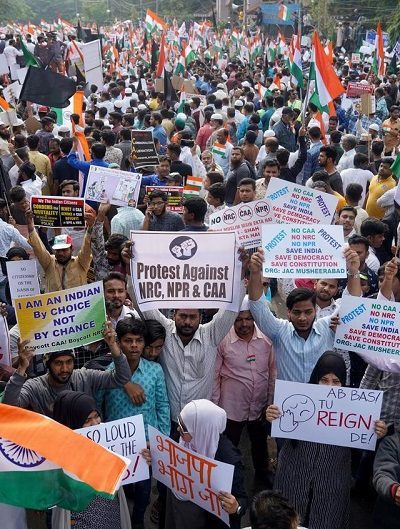International Support Continues for Protesting Farmers in India

On 5 January, British MP Tanmanjeet Singh Dhesi wrote a letter to Boris Johnson urging him to convey to Indian Prime Minister Narendra Modi the “heartfelt anxieties” of MPs’ constituents (many emanating from Punjab) regarding the treatment of protesting farmers in India. The letter was signed by more than 100 MPs and Lords and had cross-party support.
Dhesi stated that many constituents had been horrified to see footage of water cannon, tear gas and brute force being used against protesting farmers on the outskirts of Delhi. He made it clear to Johnson that farmers were protesting against major corporates moving into India’s farming sector. Johnson was asked if he could clarify whether he understood the issue (a previous baffling statement by him indicated that he did not) and whether he agreed that everyone has a fundamental right to peaceful protest.
The letter was written against the backdrop of an Indian diaspora community in Britain that had taken to the streets in support of Indian farmers who are demanding the repeal of three farm laws that were forced through the Indian Parliament. These laws could pave the way for the dismantling of the minimum support price (MSP) system, leaving farmers at the mercy of powerful corporate players.
UK campaign
The Landworkers’ Alliance (a UK cooperative) recently posted a link to a campaign page urging people in Britain to write to their MPs asking them to support farmers in India.
The campaign explains that the legislation will:
“… loosen rules around sale, pricing and storage of farm produce, allowing a farm sector which has historically been protected by government regulation to be liberalised and opened to corporate investment.”
It says that India will be taken down the route that the UK has already followed towards the consolidation and industrialisation of the agriculture sector:
“… this is a path for agriculture that consolidates the control of corporations and supermarkets and negatively impacts the independent SME farming sector, destroying our food sovereignty.”
India is still very much an agrarian-based society with over 60 per cent of the population still depending (directly or indirectly) on agriculture for a living. The campaign notes that India’s states have strong powers to provide a guaranteed minimum price to farmers, which can provide a fair livelihood for them and the agricultural workers they may hire, alongside ensuring basic food security for India.
Removal of these protections will have a direct impact on the livelihoods of these millions of farmers and farmworkers and may lead to poverty and loss of dignity on an unimaginable scale.
The campaign condemns the British government for being “implicit in promoting market reforms and providing expertise to the Indian government to allow private investment and increase corporate control of the agricuture sector in India.” For instance, the Conceptual Farmework on Agriculture and the UK-India Infrastructure Technical Co-Operation Facility (ITCF) promotes contract farming (one of the issues the farmers are protesting about) and finances consultants to “alleviate bottlenecks to private sector investment in agriculture” in India.
Voice of the farmer
In a short video that appears on the empirediaries.com You Tube channel, an interview with a protesting farmer camped outside near Delhi is very revealing.
During lockdown and times of crisis, he says farmers are treated like “gods” but when they ask for their rights, they become labelled as “‘terrorists”.
He goes on to say that the contested legislation is a matter of “ego” for Modi:
“Corporates invested in Modi before the election and brought him to power. He’s sold out. He’s an agent of Ambani and Adani. He’s unable to repeal the bills because his owners will scold him. He’s trapped. But we are not backing down either.”
The farmer then asks:
“Do ministers know how many seeds are needed to grow wheat on an acre of land? We farmers know. They made farm laws sitting in AC rooms. And they are teaching us the benefits!”
While corporates will initially pay good money for crops, once state-run markets are gone, they will become the only buyers and will beat prices down:
“Why can’t farmers put minimum prices on the crops we produce? A law must be brought to guarantee MSP. Whoever buys below MSP must be punished by law.”
In finishing, he asks why, in other sectors, do sellers get to put price tags on their products but not farmers.
Visit the UK campaign page here.
*
Note to readers: please click the share buttons above or below. Forward this article to your email lists. Crosspost on your blog site, internet forums. etc.
Colin Todhunter is a frequent contributor to Global Research and Asia-Pacific Research.

